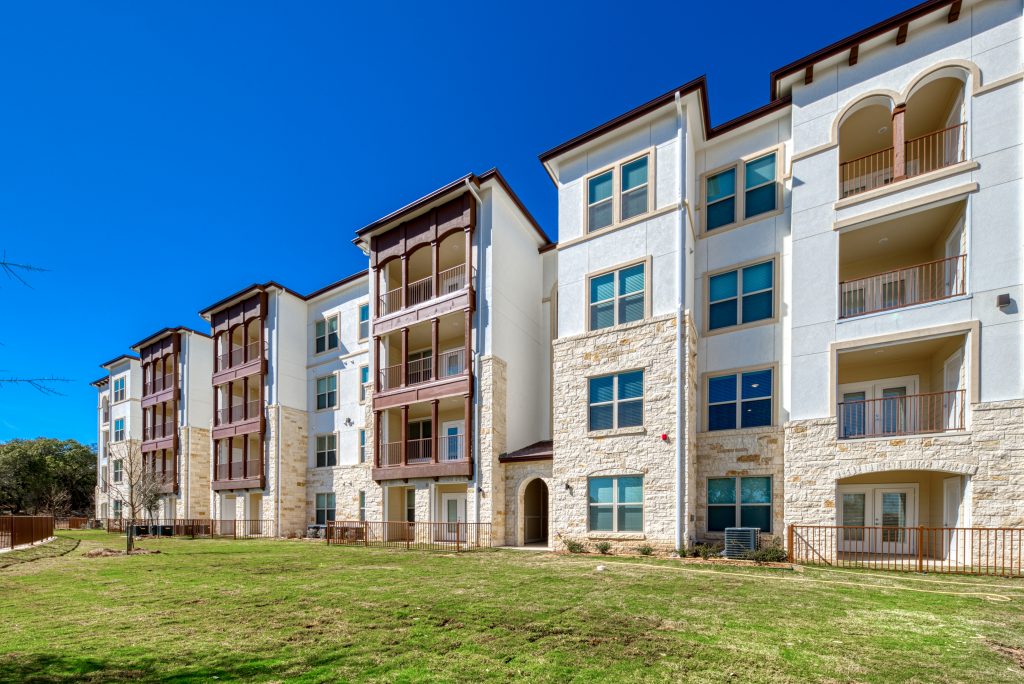Many people feel that they are too busy with a career to ever consider setting up a passive income stream…not to mention a passive income stream that is stable, long-term, and nearly recession proof. What if we told you that all of that is, in fact, possible? In this post, we’ll showcase how investors can create passive income through commercial investing.
Is Commercial Real Estate a good option for building passive income?
Commercial Real Estate (CRE) investment is an excellent way to earn a passive income from a real asset driven by a few key factors:
- The necessity of commercial real estate in the global economy makes it an enduring investment option regardless of the business cycle. This is evident throughout the economy, office spaces house professional workers; industrial warehouses are required to manufacture goods, and retail premises provide entertainment options for patrons.
- The lease agreements for commercial property are long term in nature, typically, a lease spans for a minimum of three years, which provides a consistent stream of future rental cash flows.
- CRE is an income-driven investment which isn’t materially impacted by emotional drivers, unlike other asset classes such as residential property.
- The lease agreements can include clauses for fixed annual increases, which allows for growth and certainty of income over the lease term.

4 Ways to Build Passive Income through Commercial Real Estate
Direct ownership
Traditionally direct ownership of individual assets has been the main way investors earn passive income in CRE. This method is suited to investors able to dedicate large amounts of time and capital to CRE investing. While asset level control and low fees are benefits to this strategy there are significant disadvantages including; large capital entry requirements, lack of diversification, potential lack of transparency, liquidity issues, and potentially lack of investment expertise to produce sustainable asset performance.
Proportionate Ownership Schemes
Investors can participate in real estate pooled-investment vehicles as a way to build passive income portfolios. In this method, several investors pool their capital together to purchase real estate, which is managed by a third-party, in exchange for ongoing cash and capital returns. Benefits of this method include the flexibility of allocation size and the ability to leverage investment and management expertise. Downsides can include high fees or misalignment of incentives between the Investor and the manager. This avenue of earning passive income has proliferated in recent years due to the high returns many investments offer compared to bank deposits.
Public Real Estate Investment Trust (REIT)
A real estate investment trust (REIT) is a publicly-traded company that owns, and in most cases operates, income-producing real estate. REITs give investors the ability to earn the passive income associated with real estate ownership without the trouble of being a landlord in the traditional sense. REITs main benefit is the liquidity the public markets provide along with a certain level of diversification. Disadvantages of publicly listed REITs are that they display a strong correlation with stock market volatility, offer no asset level control, and often offer lower yields compared to direct ownership opportunities.
Private CRE funds
Private CRE funds can be thought of as a mutual fund, and offer individuals an opportunity to invest in the real estate sector while remaining completely passive. Private CRE funds are not regulated as heavily as the more publicly traded REITs. However, because these funds are private and not publicly traded assets, these funds and the dividends associated with them are not as subject to stock market volatility as REITs.
The Role of Professional Property Management
Having a top-notch property management team is key when it comes to making money from commercial real estate projects without a lot of hassle. These professionals handle everything behind the scenes and make sure everything runs smoothly. They work hard to keep the building full of tenants, which means your investment keeps paying off month after month. They also keep an eye on expenses to make sure you’re not spending more than you need to. Plus, they stay up to date on all the rules and regulations, so investors don’t have to worry about unexpected fines or legal issues. In short, good property management can make your investment more profitable by keeping it filled with happy tenants and keeping costs under control.

Impact of Technological Advancements on CRE
Technology is changing the game for commercial real estate. With more people shopping online, there’s a big demand for places to store all those products before they get delivered. This means warehouses and data centers are becoming hot properties. On top of that, as more folks work from home, businesses are rethinking their need for big office spaces. And, buildings that are smart enough to save on energy costs or make tenants’ lives easier are becoming more popular. All these changes mean that if you’re looking to invest in commercial real estate, it’s smart to think about how technology is shaping which types of properties are in demand.
Sustainability and Green Investing in CRE
Being green is more than just a trend; it’s a smart move for commercial real estate investors. Buildings that use less energy or are made from eco-friendly materials are good for the planet and are smart investments. Tenants are increasingly looking for spaces that match their values, which often means being environmentally friendly. This can make green buildings easier to rent out and sometimes even means you can charge more. Plus, saving on energy costs means more profit for you. As more people and businesses put a premium on sustainable real estate, these types of properties might even increase in value faster than traditional ones. Investing in green real estate today could lead to bigger returns tomorrow.
Casey Development, Ltd: Commercial Real Estate Investors in Central Texas
Commercial real estate offers several different ways to build your passive income. If you are ready to start acquiring passive income, through the long-term investment avenue of commercial real estate, then Casey Development, Ltd. in San Antonio is the right partner for you. Contact us today to learn more about commercial real estate development opportunities throughout Central Texas.
